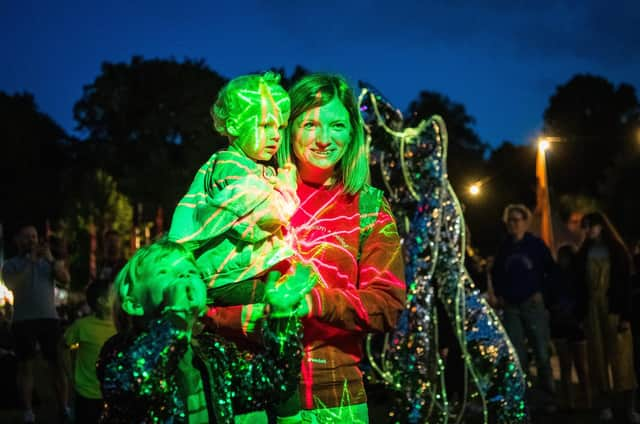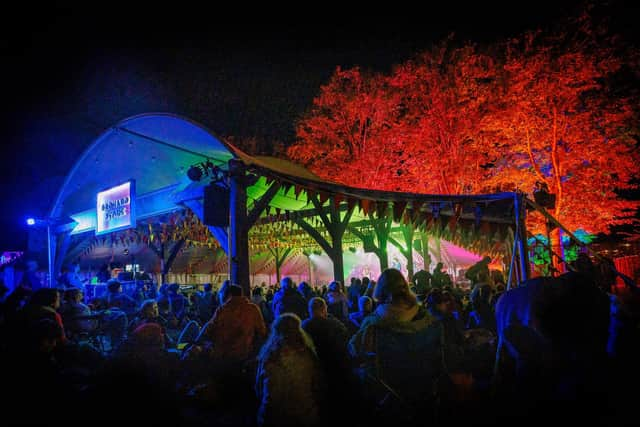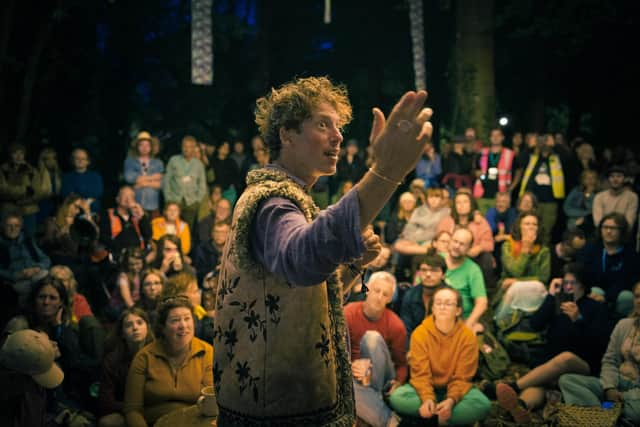Review: Greenbelt festival at Boughton House brings hope, humour and humanity


Greenbelt: gloriously unfashionable. I don’t expect the festival to use that as a marketing slogan, but it is perhaps one of the best things that can be said about anything these days.
At a time when hope seems scarce, when the soul is under threat from the algorithm, when electoral politics feels ever more cynical and when real change is presented as a mortal danger, Greenbelt is like something from an alternative dimension. It presents a different way of doing things, and restores some degree of faith in the future.
Advertisement
Hide AdAdvertisement
Hide AdThe grounds of Boughton House are almost too gorgeous a setting. They make it easier to criticise Greenbelt for being a bit utopian, otherworldly, disconnected from concrete reality. But they also serve as a kind of escape, a space where the normal patterns of life can be suspended for a few days and where imagination can find a home. On a sunny day, it is unlikely that any festival is prettier.


And besides, it soon becomes clear that Greenbelt is actually very much about reality. The first discussion I attended on Saturday was about the day’s news. But this was not your typical paper review, where various members of the commentariat are pitted against each other to generate viral content. These panellists worked for the Trussell Trust, which campaigns against hunger and runs countless foodbanks across the country. To them, the cost-of-living crisis is not an abstract issue, but something they confront daily, face to face. So there was a level of expertise, insight and indignation you won’t find on any daytime TV show, with the audience adding plenty of their own. The broadcaster and writer Cole Moreton compered proceedings with skill and wit, always seeking voices that dissented from the generally leftwing ‘Greenbelt consensus’.
There are, at any one time, approximately 746 things you can be doing at Greenbelt (or so it seems). I might, for example, have spent the previous hour at a goth communion featuring chocolate, or a tea-drinking session where all the talk was of death. I could spend the next hour hearing from food writer Jack Monroe, say, or delving into ‘Wild Christianity’, or discovering what AI can teach us about humanity. Instead, I watched a play called All Our Money, about how Birmingham City Council spends its budget; it features 7,000 golden dominoes, and its lead character is a giant teddy bear football mascot. They deserve five stars just for trying. It is enlightening and engaging, a little Yes, Minister in places, albeit taken at a more leisurely pace.
After a while spent just exploring the site and savouring the atmosphere (it is very friendly, though not, in my experience, cloyingly so), it was time to hear from Brian Eno (yes, Brian Eno, whose influence on music over the past 50 years has been just about as profound as anyone’s) and Claire Farrell, the co-founder of Extinction Rebellion. They were talking about the relationship between art and activism, focussing on a shared enthusiasm, Citizens’ Assemblies. They argued, quite enthrallingly, that such ventures represent the future of democracy.
Advertisement
Hide AdAdvertisement
Hide AdMusic has been at the heart of Greenbelt throughout its 50-year history; it has hosted Ed Sheeran, Moby, Athlete, Goldie, Röyksopp, Beverley Knight, Corrine Bailey Rae, Kae Tempest and even, in 1981, U2. Among the highlights on the main stage on Saturday were the cross-cultural, genre-busting TC & The Groove Family, the veteran activist Bruce Cockburn and the riotously intoxicating K.O.G. (short for Kweku of Ghana). The headliner was the triple Mercury Prize nominee and double Mobo and Ivor Novello-winning Laura Mvula, giving a slick, sleek and immensely accomplished performance, while seeming genuinely and endearingly thrilled to be playing at Greenbelt (which she compared favourably to Glastonbury).


That was the end of the day for me, but not for many others. An array of nocturnal delights awaited elsewhere on the site, including Sam Redmore & The Tropical Soundclash Allstars, a late-night communion service and a meditative, candlelit experience called Immerse. Those able to stay for the festival’s four days have also had the chance hear Gordon Brown talk, Milton Jones tell jokes, Indigo Girls play their folk-rock, Chali 2na bring his hip hop, and much else.
To anyone unfamiliar with the festival, it may have become apparent from mentions of the occasional religious practice that Greenbelt is, well, a bit Christian. It seems Greenbelt is a bit less vocal about this than it once was. Some will welcome this; others will see it a source of regret. Its breadth means it can host speakers like Andrew Copson, the chief executive of Humanists UK, along with plenty of other atheists and agnostics, despite its biggest single event being the Festival Communion on Sunday morning. Greenbelt’s brand of theology is very activist, which may be why it is quite comfortable hosting figures who hold fundamentally different views on the nature of the universe, but who see life on earth in broadly similar terms. Those most likely to feel uncomfortable with today’s Greenbelt are not followers of other faiths or non-believers, but certain kinds of Christian conservatives and traditionalists.
But this tells us something else: that Greenbelt is not some mushy and vague attempt to make Christianity palatable, but a festival with its own clear identity, which could be described as a kind of friendly ferocity. It is easy to mock it, affectionately or otherwise; it can be unduly earnest and a tad cringe-triggering. More seriously, it can show a bit too much faith in humankind. But it does not try to be cool, and that is what makes it courageous. Fashionable? No. But in its own Greenbelty way, it’s still kind of glorious.
Visit greenbelt.org.uk for more information